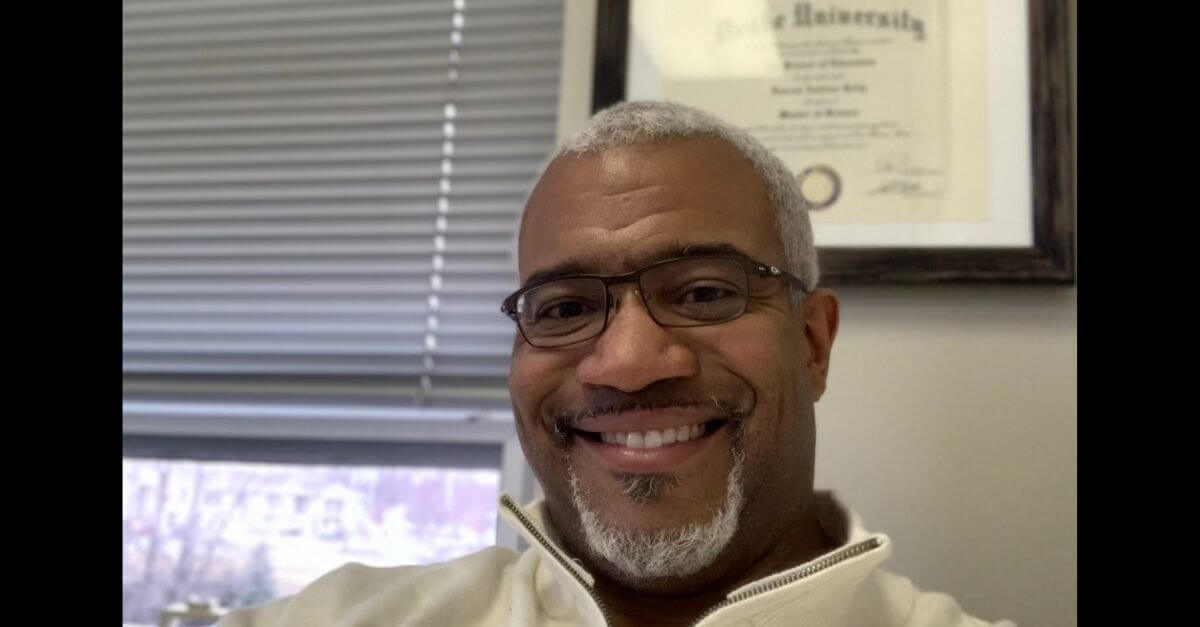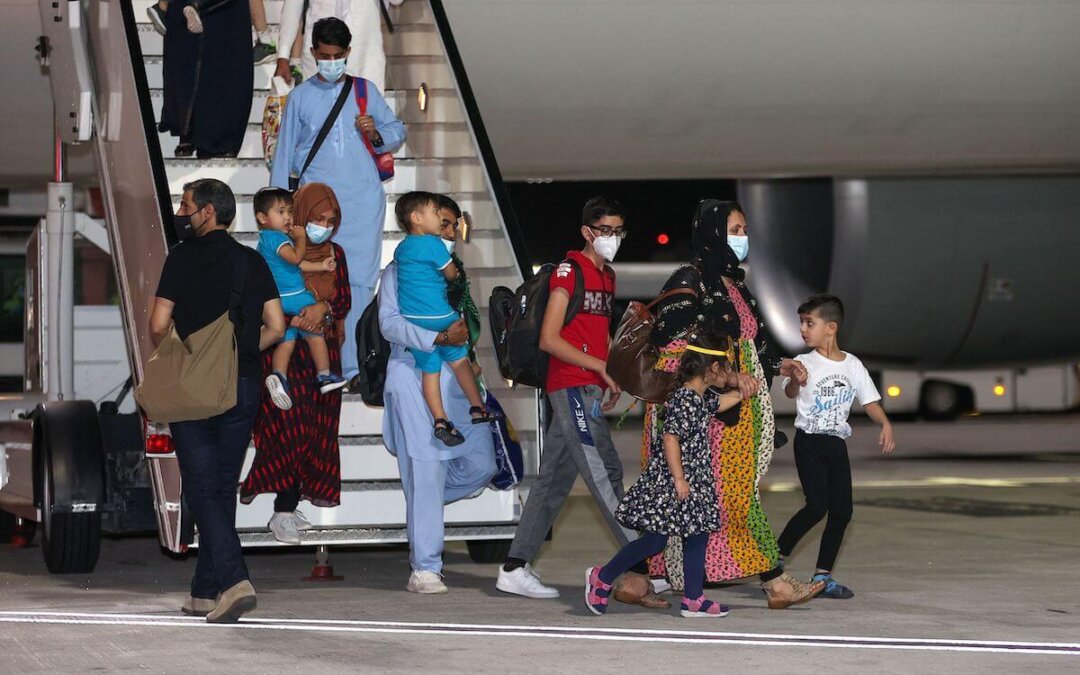
Photo: Des Moines therapist Vincent Kelly
The months of February and March this year mark a grim reminder of how the coronavirus pandemic began to change our lives forever one year ago. We are beginning to see the light at the end of the tunnel, yet the scars of loss, depression, anxiety and pain remain.
A comment that resonated with me from the beginning of the pandemic was, “We are all riding in the same storm, but we are not all in the same boat.” A reminder that the same inequalities that plagued communities of color throughout history are the same that continues to impact their lives today.
Lack of access to health care service comes to mind, especially with so many holding jobs that cannot be done from the safety of a computer at home and that were also deemed “essential” by Gov. Kim Reynolds as the conditions in meat packing plants worsened.
In Iowa, 13.9% of Latinos lack health insurance, compared to 5.0% for all Iowans. And the poverty rate for African Americans is at 30.7%. Few have any generational wealth to fall back on.
[inline-ad id=”1″]
In July of last year, Reynolds announced a $50 million allocation of the CARES Act towards mental health, yet we still do not have enough providers serving who also reflect communities of color.
The question of how persons of color fared with their mental health during the pandemic was still on my mind. I spoke to two mental health professionals who are trusted and well-known in the African American and Latino communities in the Des Moines Area.
Vincent Kelly is an Outpatient Mental Health Therapist and owner of Affinity Therapy and Counseling. His patient base is truly diverse. Kelly expressed that since the pandemic began, there has been an influx of clients seeking mental health help, especially after the winter months which aggravated COVID fatigue.
[inline-ad id=”2″]
The common denominator for Kelly’s clients is anxiety and depression, which leads to more substance abuse and domestic violence.
“People are struggling because there’s no opportunity to have any sort of transition time, whether it’s trying to work a couple of different jobs, manage their kids. It’s worsening a situation that is already complex, but people are doing the best they can to try to manage and get through it,” Kelly said. “It has been negatively impacting people of color.”
According to Kelly, many of these individuals suffering are in the service industry, are frontline or essential workers where the risk of potential infection is greater, making the levels of anxiety extremely high.
Another issue in seeking services is the stigma around mental health that exists in communities of color. There are people that prefer to manage their mental health problems themselves, or just ignore it in order to avoid judgment from their own community.
[inline-ad id=”3″]
But Kelly told me that many have reached a breaking point and feel very distressed, not knowing what else to do and have now reached out looking for mental health services.
“It is extremely beneficial when you have more providers who are people of color and are actively in those roles to support folks,” he said. “People tell me that when they were scrolling through and saw my face, and you are a person of color and they feel like I can potentially relate to some of the things they are thinking or feeling.”
The more people of color in these roles are going to help decrease those stigmas.
Compounding the health crisis of the pandemic was the murder of George Floyd in May of last year and the events that followed. Kelly said that members of the communities of color continue to do what they have always done: “Try to find our voices, our roles and the construct of our democracy.”
[inline-ad id=”4″]
“Our people will always function within a stress response, making sure that they can protect themselves in certain situations in order to function. Long story short, people of color are dealing with a lot,” he said.
Another expert in the field is Alex Piedras, a bicultural and bilingual License Mental Health Counselor. He agreed that anxiety and depression are the most common problems he’s seeing since COVID.
We talked about what youth are going through, and Piedras said that many times it is difficult for young people to identify what is happening, or what they are experiencing through the pandemic. Many are feeling that their parents are controlling them because they are not allowed to go out, often thinking they are bored, when in fact they are depressed. Also with lack of activity there is the issue of weight gain, which ends up causing low self-esteem for many young persons.
Piedras also said that in addition to the typical taboos about mental health in communities of color, gender is also a factor on who seeks help or not.
“Women are more willing and open to talk about their problems than males since in our cultures there’s a lot of machismo and the perception of males not being weak or vulnerable,” Piedras said. “So we have males dealing with these stressors in a different way, like drinking excessively or using illegal substances, which ends up as a vicious cycle.”
[inline-ad id=”5″]
When it comes to people of color working at meatpacking plants and other “essential” jobs, Alex speaks of a sense of surrendering to becoming infected because they must work to support their families.
“These people have no alternative; they have to go work,” Piedras said.
Immigrants also face challenges when a family member dies in their countries of origin. For those who are able to travel, who have documentation to leave and return to the U.S., the problem came when countries shut down their airports. Cultures have different ways to process the loss of a loved one, often guided by their faith. Not being able to practice traditional rituals took away the sense of closure and grew sentiments of guilt.
“For some, this is an extremely difficult thing to deal with and I don’t think they ever get over that, they never have any closure,” said Piedras.
[inline-ad id=”6″]
Alex encourages people of color to open themselves to the idea of seeking help when experiencing these issues and not be in denial, inviting people to explore what they are experiencing and seek professional help.
He also added that if there have been any attempts to address the mental health crisis among people of color, we need more, and the government and other institutions need to learn to connect with our communities.
Yes, all of us have been impacted by the pandemic, and people of color continue to experience inequalities as they have in the past. We all have a responsibility to address disparities, inequality and to find ways to address mental health services that mirror our communities of color. If we can get traveling nurses here to help with the pandemic and if we can use virtual services, then we can also make internet and mental health services available to all. Ignoring mental health for all is a major mistake.
by Claudia Thrane
Posted 3/14/21
Iowa Starting Line is an independently owned progressive news outlet devoted to providing unique, insightful coverage on Iowa news and politics. We need reader support to continue operating — please donate here. Follow us on Twitter and Facebook for more coverage.
[inline-ad id=”3″]
Politics

Biden marks Earth Day by announcing $7 billion in solar grants
The Biden administration on Monday announced the recipients of its Solar For All Program, a $7 billion climate program that aims to lower energy...

6 terrifying things that could happen if the Comstock Act is used to target abortion
Does 1873 sound like a really, really long time ago? Well, that’s because it is—but if Republicans and far-right anti-abortion activists have their...
Local News

No more Kum & Go? New owner Maverik of Utah retiring famous brand
Will Kum & Go have come and gone by next year? One new report claims that's the plan by the store's new owners. The Iowa-based convenience store...

Here’s a recap of the biggest headlines Iowa celebs made In 2023
For these famous Iowans, 2023 was a year of controversy, career highlights, and full-circle moments. Here’s how 2023 went for the following Iowans:...




